Music Biennale Zagreb: A Diary
Published April, 2025
by Lucia Udvardyova
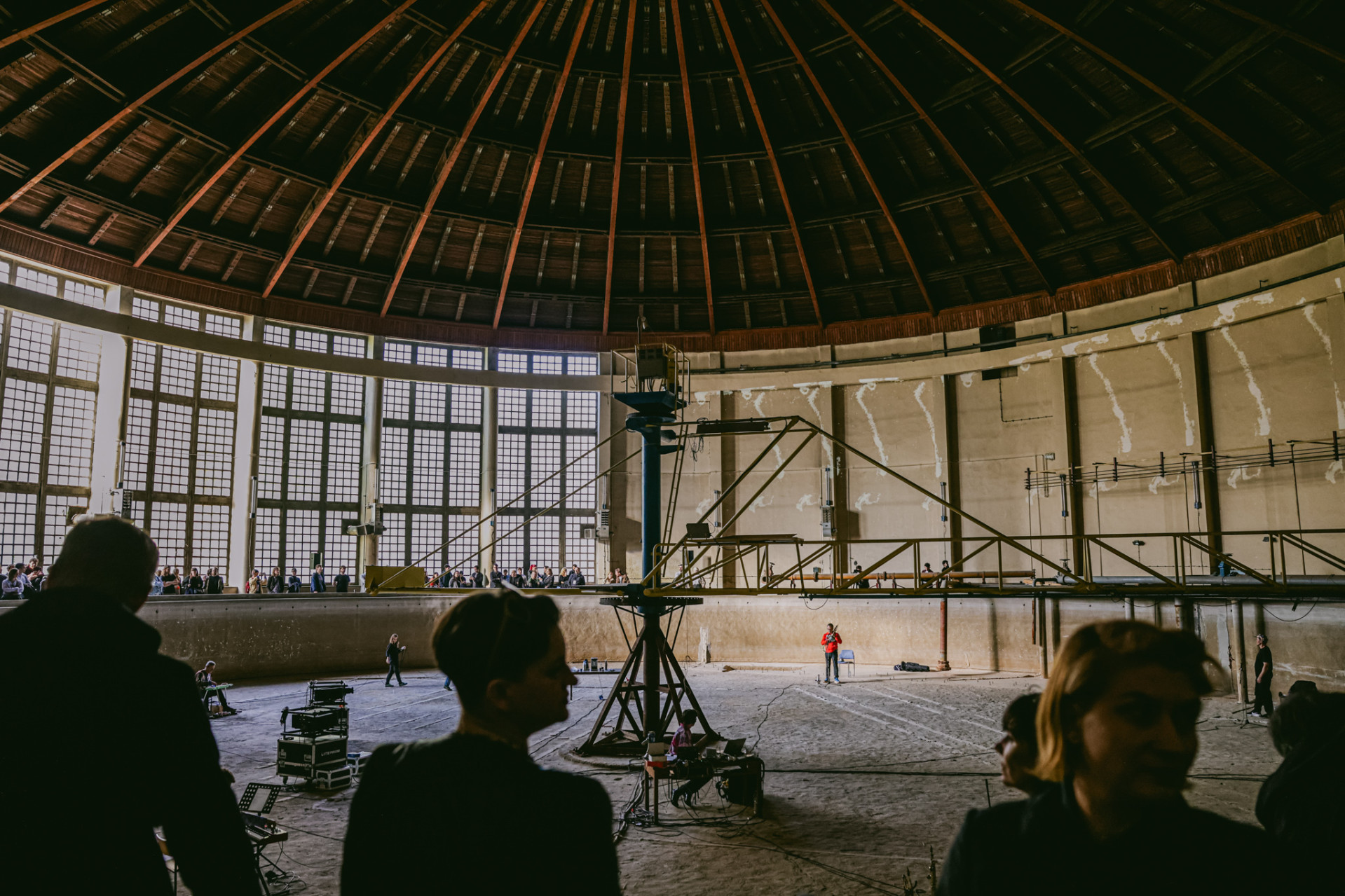
With the inherent precariousness of the music industry and the disjointed pockets of various happenings and events, it’s rare these days to attend a music festival that is more than 60 years old. Music Biennale Zagreb (MBZ) counts among the legendary East/Central European music happenings, along with the iconic Warsaw Autumn – which have aimed to highlight avant-garde, contemporary musical streams and artists. The Biennale doesn’t only concentrate in fancy buildings, but also transgresses the confines of the institutional and takes over the city and its many hidden, charming corners. It has a revolving curatorial management, this year with three curators overseeing the programme.

Thus, on a sunny day at 11 am in April, I witness a spellbinding series of solos by the students of Zagreb’s Music Academy in the Oktogon passage with a beautiful atrium ceiling with rays of sunshine illuminating the sounds of vibrafon, tapan, and a Max MSP patch. Later, I find myself at the imposing, brutalist building of the Museum of Modern Art in Novi Zagreb, watching a slightly confused theatre/performance entitled Les Murs meurent aussi, which apparently – according to the press text – “explores the violence of borders and walls – both physical and emotional.” “It also includes other tragic stories, such as the fate of the shaman Alexander Gabyshev, who tried to overthrow Putin only to end up in psychiatric treatment, and the testimonies of several performers: violinist Winnie Cheng describes the life of “two” Chinas, pianist Pascal Meyer recalls his childhood in Czechoslovakia in the era of the Iron Curtain, and guitarist Srđan Berdović recounts hiding in a Dubrovnik basement during the Homeland War.” I was not sure whether it was a slapstick on purpose or by accident; either way, I left perplexed.
One of the festival hubs that hosted several concerts of MBZ was KONTEJNER, a key independent initiative in Zagreb and the Balkan region, as such, for various kinds of experimental media endeavours. Founded in 2002, it has engaged in curatorial work, organisation of festivals, public events, education, publishing, and social theory, at the intersection of art, new media, technology, society, and science. Located next to a towering, decaying publishing house, KONTEJNER is a cozy exhibition and event space that should not be missed. KONTEJNER hosted electronic / avant-garde performances by the likes of Rodrigo Constanzo and the duo scapegoat, which highlighted the Biennale’s embrace of more electronic/experimental sonics.
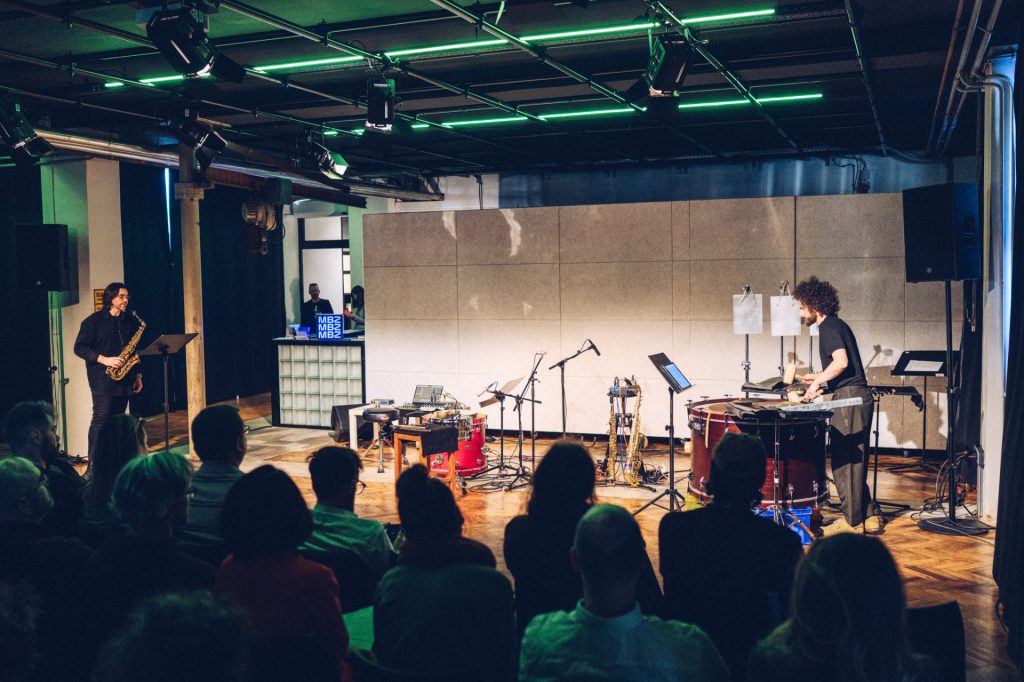
Another important space in Zagreb is Medika, a fairly large squat in the city centre that hosts events and various happenings. I managed to visit its Attack club, with a psytrance party going on across two separate floors/rooms. With a 10 euro entrance, it’s hard to think of it as the leftist, punk-like temporary autonomous zone of yesteryear, but we’ve all been co-opted by the capitalist system, so no judgement there…Anyway, I spent a few thoroughly enjoyable hours in the dimly lit, graffitied environs of Medika, sucked in and thrown out by my ability or inability to tolerate psytrance. This was followed by a haphazard visit to the EX club, located in the corner of the WESTIN hotel. We arrived at the end of the night with turbofolk blasting and five people wandering around. Apparently, the local mafia also likes to hang out there, but I cannot verify as I haven’t seen any.
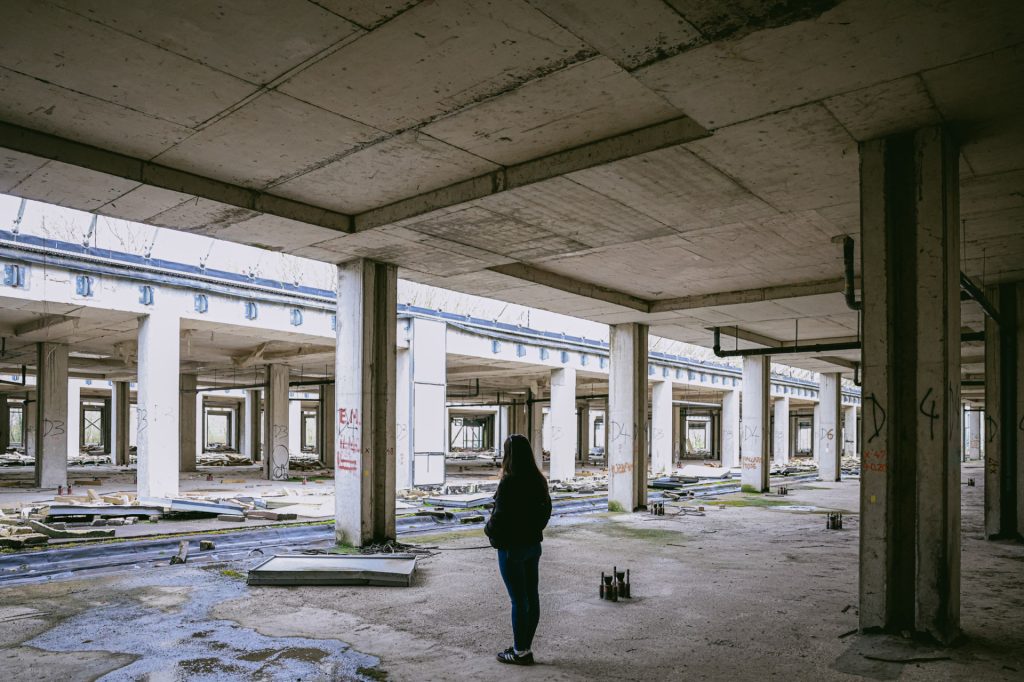
After a few hours of sleep, I meet Nina Maštruko – read her article about Zagreb’s experimental scene here – my wonderful host and guide throughout the Biennale. She works for the communications/production of MBZ, but besides this, she is deeply involved in the city’s underground scene – either as a DJ, production manager (eg, who started out running the ZEZ Festival). She kindly invites us for a private tour of the most amazing abandoned building / complex/concrete universe I’ve ever seen. The vast, unfinished skeleton of the University Hospital Blato, built between 1982 and 1992, whose completion was put to an indefinite halt by the Yugoslav wars of the 90s. This is exactly how I imagine a post-apocalyptic world to be: shattered, austere, but eerily solemn and serene at the same time. The expansive complex hosted Infused 36’000’000ms, which explored the theme of Broken Relationships, which was the leitmotif of the Biennale as such (inspired by Zagreb’s infamous museum of the same name). The project connected three different locations – the equally mindblowing spacious, round building of the shipbuilding Brodarski Institute, the aforementioned hospital, and the Museum of Contemporary Art via sound and visuals.
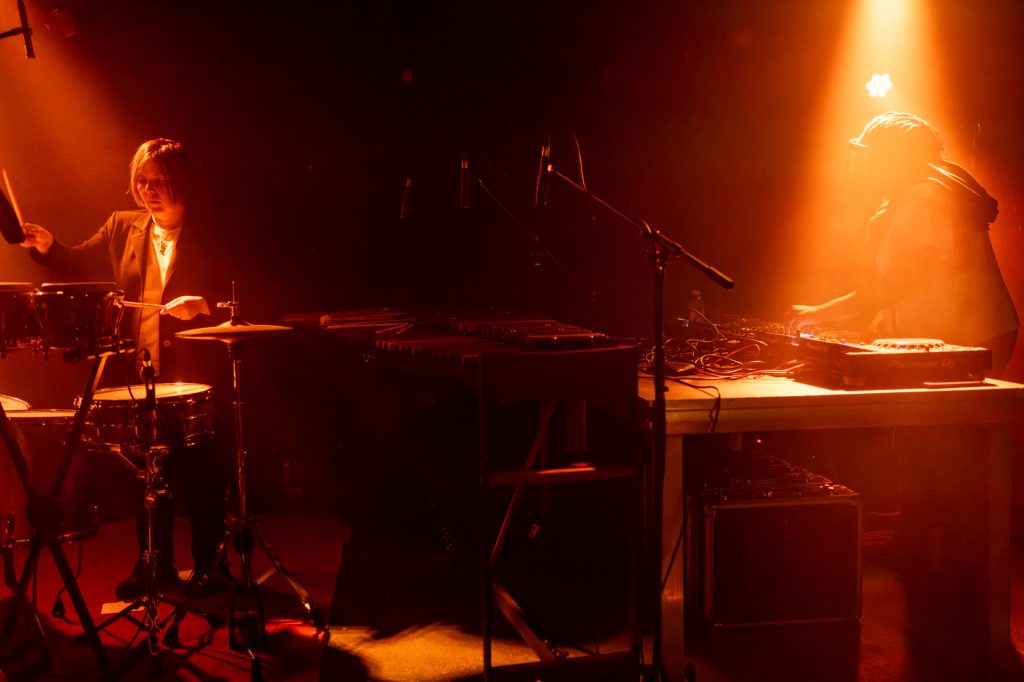
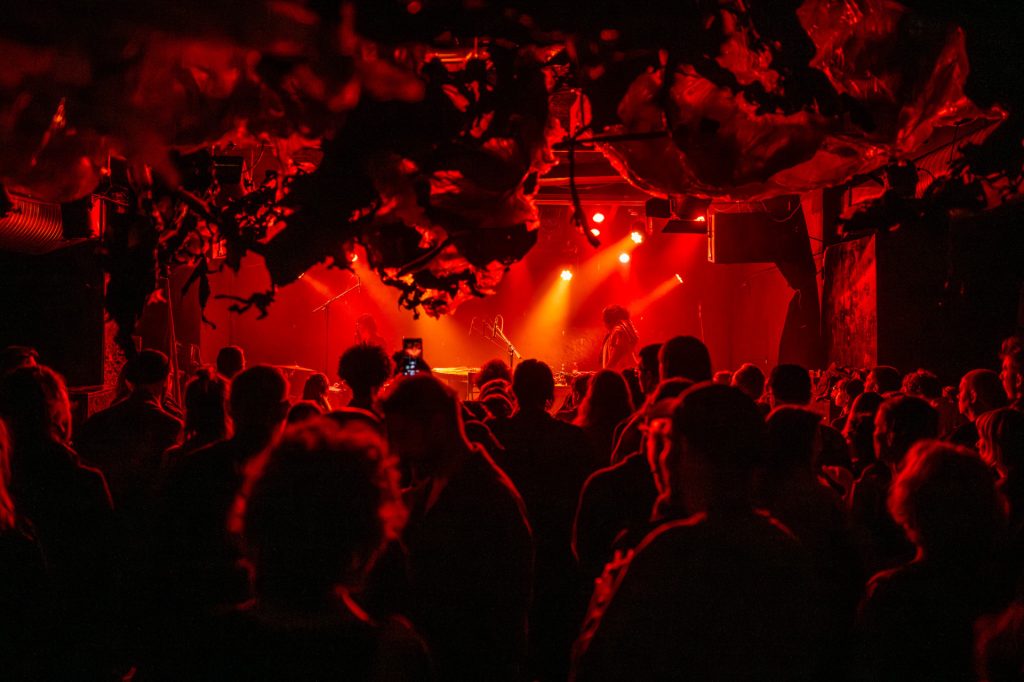
As the night descends, the clubbing-friendly Močvara, situated near the river, welcomes the nocturnally oriented part of the audience with the likes of Nídia & Valentina Magaletti and breakcore/metal melange Bong-Ra. There was no better ending than the amazing field recorder & sound explorer Manja Ristič at 05:30 am, for those who could stay up or rise early (sadly, I wasn’t able to do either).
My Zagreb sojourn ends at the Museum of Broken Relationships, where MBZ had a mixtape/sound installation and whose thematic focus – on the fractures and fissures between humans and the world at large- became the lens through which the programme had been put together. With the brokenhearted and the sonically adventurous, I bid farewell to Zagreb and the 33rd edition of its Music Biennale.
Text: Lucia Udvardyova
Photos: Music Biennale Zagreb
This article is brought to you as part of the EM GUIDE project – an initiative dedicated to empowering independent music magazines and strengthen the underground music scene in Europe. Read more about the project at emgui.de.
Funded by the European Union. Views and opinions expressed are however those of the author(s) only and do not necessarily reflect those of the European Union or the European Education and Culture Executive Agency (EACEA). Neither the European Union nor EACEA can be held responsible for them.